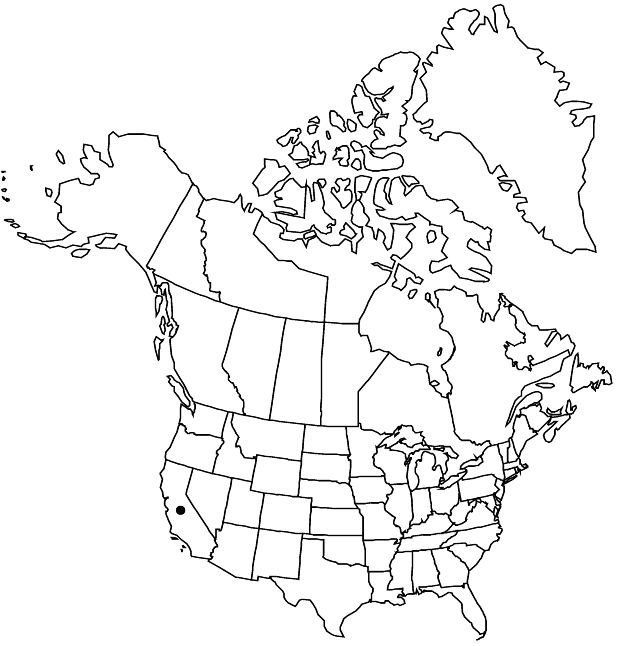Dudleya abramsii subsp. bettinae
Phytologia 70: 229. 1991 ,.
Caudices closely branched, 1–3 cm diam. Leaves: rosettes 100+; blade oblong, subterete, 2–7 × 0.3–0.7 cm. Inflorescences: floral shoots 15–25 × 0.2–0.5 cm; proximalmost leaf blades 10–20 mm; branches often 1–2, simple. Pedicels 1–4 mm. Flowers: calyx 4–6 × 4–7 mm; petals connate 1.5–2 mm, straw yellow, red-lineolate, 8–16 × 2.5–4 mm, tips erect. 2n = 34.
Phenology: Flowering early summer.
Habitat: Barren serpentine outcrops
Elevation: 0-200 m
Discussion
Of conservation concern.
Subspecies bettinae can form clumps to 4 dm in diameter. It is known from near the coast west of San Luis Obispo and west of the range of subsp. murina; it is considered fairly endangered (California Native Plant Society, http://cnps.web.aplus.net/cgi-bin/inv/inventory.cgi). R. F. Hoover (1965, 1970) listed as Dudleya parva what seems to be a smaller form of this subspecies, local near San Bernardo Creek and the mouth of Chorro Creek.
Selected References
None.
